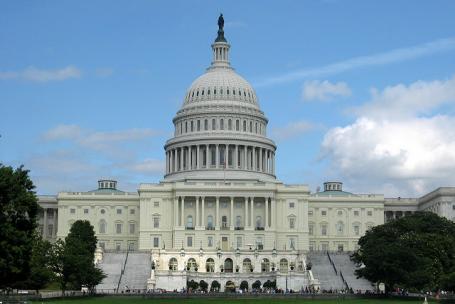Bill signing revives plans for Detroit patent office
Patent legislation that had a big push from Michigan’s research universities and the Detroit automakers has been signed into law.
The “America Invents Act” promises to speed up the patent process, and help reduce a backlog of some 700,000 patent applications in Washington D.C.
Part of that includes opening a satellite patent office in Detroit and two other locations.
"It really puts the patent office in one of the invention centers of the nation, which is the Detroit area," said Steve Forrest, vice president for research at the University of Michigan.
Research schools like U of M say the changes will help them get ideas from academia to the marketplace more quickly.
"The delays have caused some uncertainty in the system. And uncertainty is bad for us because what we’re looking for is either existing companies or new start-ups to open new lines of business or entirely new businesses – so they’re looking for funding, for example, and management," said Rick Brandon, a patent attorney with the University of Michigan.
Brandon says he expects the new law will mean quicker turnaround on patent decisions so people know whether to put time, money and effort into developing new products.
Some independent inventors have complained that the changes favor large institutions and could put them at a disadvantage.
To hear an earlier story about the U.S. Patent Office's plans (later postponed) to open a Detroit patent office, click here.
From the America Invents Act:
DESIGNATION.—The satellite office of the United States Patent and Trademark Office to be located in Detroit, Michigan, shall be known and designated as the ‘‘Elijah J. McCoy United States Patent and Trademark Office’’.
The Detroit Free Press reports that U.S. Senator Debbie Stabenow (D-Michigan) added the provision to name a future Detroit patent office after McCoy:
Elijah J. McCoy [was] an African-American inventor born in Canada and raised in Ypsilanti. After studying as an engineer in Scotland, McCoy, a son of former slaves, got a job as a fireman for the Michigan Central Railroad and patented several inventions, including a cup that continuously fed oil to bearings in steam engines.
Some claim his process was deemed “the real McCoy,” compared to imitators, though there are other claimants to originating the phrase. By McCoy’s death in 1929, he had secured more than 50 patents.
The legislation calls on the Director of the U.S. Patent and Trademark Office to open the satellite offices within three years "subject to available resources."
The Detroit Free Press reports the satellite office would be paid for by patent fees.
CNET reports on the big changes to the patent process as a result the America Invents Act:
Among the major changes in the legislation is turning the U.S. patent system into a first-to-file patent system as opposed to a first-to-invent system. The U.S. Patent and Trademark Office's current use of the first-to-invent system awards a patent based on the conception of the invention, not necessarily when it's filed. The first-to-file system, as the name suggests, awards a patent to the first person who files for it.

No comments:
Post a Comment